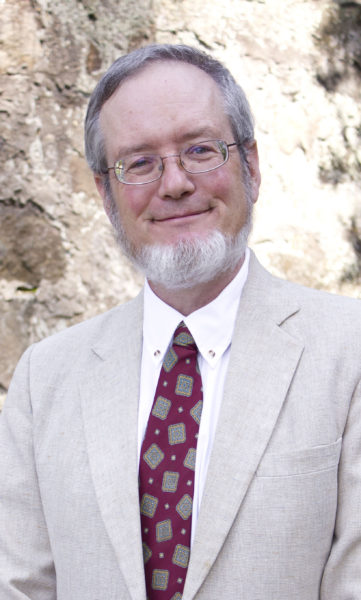One of our beloved Templeton professors, Dr. Phillip Cary, recently published a new book titled, On the Meaning of Protestant Theology: Luther, Augustine, and the Gospel that gives us Christ. Dr. Cary was kind enough to answer a few of my questions about the immense amount of work and thought he put into this highly anticipated publication. My questions and Dr. Cary’s answers are included below.
What inspired you to write a book on Augustine and Luther?
 Once upon a time, a long time ago, I thought I was writing a dissertation on Luther for my Ph.D. I was trying to understand how Luther thought about words, sacraments, and the knowledge of God, because this was central to how he thought about the Gospel of Jesus Christ, which is the word of God by which God gives us his own Son in the flesh. I just love Luther’s thinking about this. It helps me understand why good preaching and liturgy gladden my heart and make me Christian.
Once upon a time, a long time ago, I thought I was writing a dissertation on Luther for my Ph.D. I was trying to understand how Luther thought about words, sacraments, and the knowledge of God, because this was central to how he thought about the Gospel of Jesus Christ, which is the word of God by which God gives us his own Son in the flesh. I just love Luther’s thinking about this. It helps me understand why good preaching and liturgy gladden my heart and make me Christian.
So I was writing a dissertation on how word and sacrament give us Christ. And I thought the first chapter of my dissertation should be on Augustine, who was the first person who classified both word and sacrament as signs. But Augustine and his view of signs turned out to be different than I expected, and I kept having to write more to explain why that was. So that first chapter eventually grew into a much-too-large dissertation, and then three books on Augustine. I became, in fact, an Augustine scholar. This was not what I had planned.
Then, about 15 years ago, I was finally able to come back to writing about Luther. This book was the main result.
How long did it take you to prepare to write The Meaning of Protestant Theology, and what was your research process like?
Well, you need a good problem. And I had a problem. I wanted Augustine to be like Luther, and I was disappointed when he wasn’t. Then I disappointed other people as well, when I came to the conclusion that Augustine is not exactly what anyone wants him to be.
But that’s part of the task of scholarship: you try to see this writer for who he really is, let his writings say what they say instead of what you want them to say, and you keep on reading, re-reading, and then re-reading again, until the things that had surprised you start to fit with everything else he says, and it all makes sense.
The test of a good interpretation in this regard is to read something by this author that you haven’t read yet (there’s always plenty of that in both Augustine and Luther). It’s really testing a hypothesis. You had figured: “what he must mean is something like X.” And then you read something where he says X. That’s what the research process looks like at its most successful. But it takes a long time to get to that point.
What were some challenges you faced while writing this book?
The most dangerous book to write is one that’s a labor of love, which you’ve been thinking about for decades. It gets to be too big and too complicated, and often never finished. So it was actually good that this was the danger I faced with Augustine, who was not my first love as a theologian. I could actually bring what I had to say about him to a close. Then, by the time I got back to the theologian I loved the most, I could boil down what I had learned to to less than 400 pages.
Did you learn anything that surprised you about Luther or Augustine while you were writing this book?
All the time. That’s why the dissertation got to be so large.
With this latest book things worked out a little differently, because I made most of my discoveries before I started writing it. Still, I kept running into scholars who sounded to me like they were talking funny. They were saying things that everybody else said about Luther, but which I never really heard Luther himself saying. So why was that? It was only fairly late in the day–when I was in the middle of writing the book, 25 years or so after I first started thinking about it–that I realized everything fell into place if you said just one thing that Luther scholars almost always assumed couldn’t be said: that for Luther, justification was a process. Once I let myself say that, I began to see it everywhere in the text (hypothesis confirmed!). All I had to do was notice the Aristotelian language about process that he keeps using. He even tells you he’s using it, and that it comes from Aristotle. So it was an exercise in a discipline I constantly urge upon my students: let the text say what it says.








